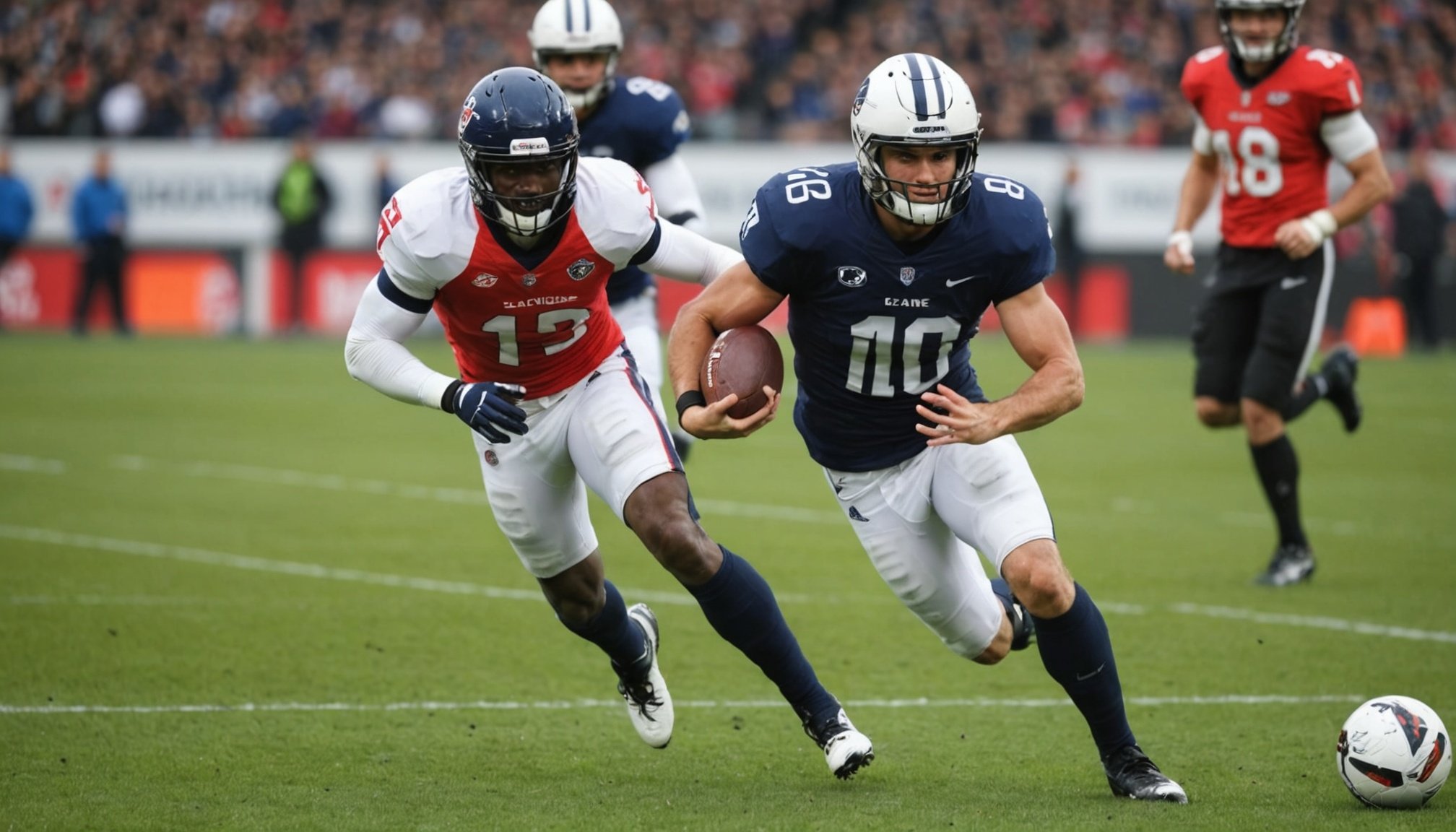In the fast-paced world of football, injuries can sideline players for extended periods, affecting not only their performance but also their career trajectory. As a football player, recovering from an injury is a multifaceted process that involves not just physical rehabilitation but also the optimization of nutrition. This article delves deeply into the critical role that nutrition plays in the recovery of injured football players in the UK, highlighting how tailored dietary choices can significantly enhance healing, bolster immune function, and ultimately facilitate a safe return to the pitch.
Understanding the Injury Recovery Process
Injuries in football can range from mild strains to severe tears and fractures. Each type of injury follows a general recovery process that consists of several phases: inflammation, repair, and remodeling. During the inflammation phase, the body initiates a response to injury, which can cause swelling and pain. The repair phase involves the formation of new tissue, while the remodeling phase sees the strengthening and refining of the healed area.
Topic to read : How does the British weather impact the training schedules and match performances of football teams?
Nutrition plays a pivotal role across all these stages. Protein is essential for building and repairing tissues, while carbohydrates provide the necessary energy for physical rehabilitation exercises. Additionally, fats are crucial for hormone production and overall cellular health. Vitamins and minerals, such as vitamin C, vitamin D, zinc, and magnesium, further support recovery by promoting collagen formation, enhancing immune function, and reducing inflammation.
By understanding the recovery process, injured players can more effectively tailor their nutrition to meet the demands of healing. This knowledge empowers them to take a proactive approach in their recovery, ensuring they fuel their bodies with the right nutrients needed during each phase of healing.
Have you seen this : How can teams effectively utilize data analytics to improve player performance in UK football?
The Importance of Macronutrients
Macronutrients—namely proteins, carbohydrates, and fats—are the building blocks of a football player’s diet, especially during recovery from injury. Each macronutrient plays a distinct yet interconnected role in facilitating healing.
Protein is perhaps the most critical macronutrient during recovery. It is responsible for the repair and growth of muscle tissues, which is particularly important after an injury. Athletes often require a higher protein intake than the average person, especially during recovery. Sources such as lean meats, fish, eggs, and plant-based proteins like legumes should be prioritized to ensure adequate intake.
Next, carbohydrates serve as the primary energy source for physical recovery. During rehabilitation, players must engage in various exercises to regain strength and mobility. Carbohydrates help replenish glycogen stores depleted during these activities. Whole grains, fruits, and vegetables are all excellent sources of carbohydrates that also provide essential vitamins and minerals.
Fats should not be overlooked either. Healthy fats from sources like avocados, nuts, seeds, and olive oil support cellular function and hormone regulation. They also aid in the absorption of fat-soluble vitamins, which are crucial for immune function and recovery.
By understanding the roles of these macronutrients, players can create a balanced diet that promotes optimal healing, helping them to return to their sport stronger and more resilient than before.
Micronutrients and Their Role in Recovery
While macronutrients are vital, the role of micronutrients in recovery is equally important. Micronutrients, which include vitamins and minerals, contribute significantly to various bodily functions that directly influence recovery from injuries.
Vitamin C is essential for collagen synthesis, which is crucial for repairing tissues and ligaments. Citrus fruits, strawberries, and bell peppers are rich sources of vitamin C. Incorporating these into your diet can help accelerate recovery.
Vitamin D plays a critical role in bone health, especially for football players who often face injuries related to the skeletal system. Adequate levels of vitamin D can improve muscle function and reduce the risk of injury. Foods like fatty fish, fortified dairy products, and exposure to sunlight can help maintain healthy vitamin D levels.
Zinc is another important mineral that supports the immune system and aids in wound healing. It can be found in foods such as meat, shellfish, legumes, and seeds. Ensuring sufficient zinc intake can help prevent infections and promote faster recovery.
Lastly, magnesium assists in muscle function and energy production. It can help alleviate cramps and muscle fatigue, which are common after an injury. Leafy greens, nuts, and whole grains are excellent sources of magnesium.
By focusing on these micronutrients, players can enhance their recovery process, ensuring their bodies have the necessary tools to heal effectively.
Hydration: The Overlooked Element of Recovery
Hydration is often an overlooked aspect of recovery, yet it is just as crucial as nutrition. When recovering from an injury, a player’s body requires adequate water intake to maintain optimal physiological function. Proper hydration helps regulate body temperature, lubricate joints, and transport nutrients to cells, all of which are essential during the healing process.
During injury recovery, inflammation can lead to loss of fluids, which may cause further complications if not addressed. Ensuring you are adequately hydrated can aid in reducing inflammation and swelling, allowing for a more efficient healing environment. Water, herbal teas, and electrolyte drinks are excellent choices to keep hydration levels in check.
It’s also essential to monitor hydration before, during, and after rehabilitation exercises. Dehydration can impair physical performance, hinder recovery, and increase the risk of re-injury. Therefore, establishing a consistent hydration routine is necessary, particularly for players engaged in intensive rehabilitation programs.
In addition to water, players should also consider incorporating foods with high water content, such as fruits and vegetables, into their diet. These not only contribute to overall hydration but also provide essential vitamins and minerals that support recovery. By prioritizing hydration, injured football players can enhance their recovery efforts and ensure they are in the best possible shape upon returning to the field.
In conclusion, nutrition plays a vital role in the recovery of injured football players in the UK. Understanding the injury recovery process and the importance of macronutrients and micronutrients allows players to make informed dietary choices that can significantly impact their healing. Furthermore, hydration remains a crucial element that should not be overlooked. By taking a comprehensive approach to nutrition, injured players can enhance their recovery, ultimately leading to a more effective and swift return to the pitch. Armed with this knowledge, players can take control of their healing journey and emerge stronger than ever.











